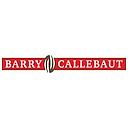
Regional Food Safety & Sanitation Manager
D’Orsogna Dolciaria, Italian Decorations &lusions
On-site
Qatar
About the role
The Regional Food Safety Manager plays a pivotal role in driving strategic food safety initiatives and ensuring the highest standards of sanitary compliance across our operations within the region. He / she will collaborate with cross-functional teams to develop, implement, and sustain robust food safety programs that align with global standards and business goals.
Key responsibilities include
- Strategic Leadership:
- Develop and execute a comprehensive regional food safety strategy that aligns with product needs, corporate objectives and regulatory requirements.
- Provide visionary leadership to continuously improve food safety systems, ensuring alignment with industry best practices and emerging trends.
- FSMS Program Development and Implementation:
- Oversee the design, implementation, and maintenance of aligned food safety programs, including HACCP for foreign material, microbiology, and allergen and toxicology compliance; tailored to regional needs.
- Standardize processes and procedures across facilities to achieve consistent food safety performance.
- Ensure on-going risk assessments to identify potential & emerging food safety hazards and implement preventive controls.
- Conduct risk assessment any new project or initiative launched by cross function.
- Monitor and respond to emerging food safety risks, including regulatory changes and industry developments, to ensure proactive compliance.
- NNS and other Food Safety Performance Improvement Projects:
- Act as the regional expert on interpretation on the NNS Standards. Organise regular training sessions to address understanding gaps, support site gap analysis, share best practices and validate action plans.
- Identify, plan, and execute strategic food safety improvement projects that address critical gaps or inefficiencies in existing systems.
- Food Safety CAPEX Program Governance:
- Collaborate with cross-functional teams to implement Food safety capex projects.
- Maintain a tracker of all FS CAPEX needs across sites and prioritise those basis risk assessment.
- Work with Global FS CAPEX team to support allocation of funds to the projects
- Support in identification and validation of new technologies to enable better food safety compliance
- EMP Program Management
- Provide guidance on the EMP program deployment to Site teams including sampling methods, number of samples, dealing with out of specs, etc. and inputs for on-going review.
- Ensure consistency of EMP program across sites.
- Oversee the weekly & monthly EMP review, decisions, escalations and reporting.
- Sanitation Program Management
- Develop and deploy Master Sanitation Schedule at each site including clear cleaning & sanitation procedures for all equipment, surfaces and facilities.
- Connect with Regional SHE teams on proper usage and application of sanitation chemicals.
- Ensure sanitation procedures are validated periodically for effectiveness.
- Ensure learning and sharing between the site sanitation teams to generate faster solutions and prevention of problems.
- Pest Management Program
- Ensure that all plants and warehouses have documented pest control program, including reporting & trending.
- Ensure learning and sharing between the site teams to generate faster solutions and prevention of problems.
- Develop resident expertise in site through internal and external trainings.
- Training and Culture:
- Lead initiatives to strengthen food safety awareness and accountability at all organizational levels through Quality Culture umbrella or otherwise.
- Develop and deliver training programs to equip teams with the knowledge and skills required for effective food safety management.
- Stakeholder Collaboration:
- Serve as the primary point of contact for regional food safety matters, collaborating with regulatory authorities, customers, and internal stakeholders.
- Partner with Operations, Engineering and Procurement teams to integrate food safety considerations into product development and supply chain management.
- Engage with external entities and attend Food Safety forums to represent BC and to learn what is new.
- Performance Monitoring and Continuous Improvement:
- Measuring food safety performance and drive continuous improvement.
- Conduct internal audits and inspections (i.e. HACCP & EMP review) to evaluate compliance and identify opportunities for enhancement.
- Crisis Management:
- Develop and maintain crisis management protocols, including recall plans and incident investigation processes.
- Lead response efforts during food safety incidents, ensuring swift and effective resolution.
- Evaluate efficiency of corrective and preventive measures to prevent resource issues.
- Talent Development:
- Mentor and develop food safety professionals within the region to build a pipeline of future leaders.
- Create and implement development programs to enhance technical expertise, leadership skills, and cross-functional collaboration.
- Foster a culture of continuous learning culture
- Identify high-potential employees and provide opportunities for advancement through stretch assignments and project leadership roles.
About you
- Bachelor’s degree in Food Science, Microbiology or a related field (Master’s degree preferred)
- Minimum of 15 years of progressive experience in food safety management, with at least 3 years in a regional or multi-site leadership role.
- In-depth knowledge of global food safety standards, regulatory frameworks, and certification schemes (e.g., FSSC 22000, BRC, FSMA).
- Technical Expertise:
- Comprehensive knowledge of food safety management systems, risk assessment methodologies, and compliance frameworks.
- Expertise in leveraging technology and data analytics to improve food safety outcomes.
- Sound knowledge of food microbiology and toxicology
- Innovation and Problem-Solving:
- Demonstrated ability to identify opportunities for improvement and implement innovative solutions.
- Proactive mindset in addressing challenges and mitigating risks effectively.
- Communication and Collaboration:
- Exceptional communication skills to engage with stakeholders at all levels, including regulatory authorities, customers, and internal teams.
- Collaborative approach to working with cross-functional teams to achieve common goals.
- Adaptability and Resilience:
- Ability to thrive in a dynamic, fast-paced environment with a focus on delivering results.
- Resilience and composure under pressure, especially during crisis management situations.